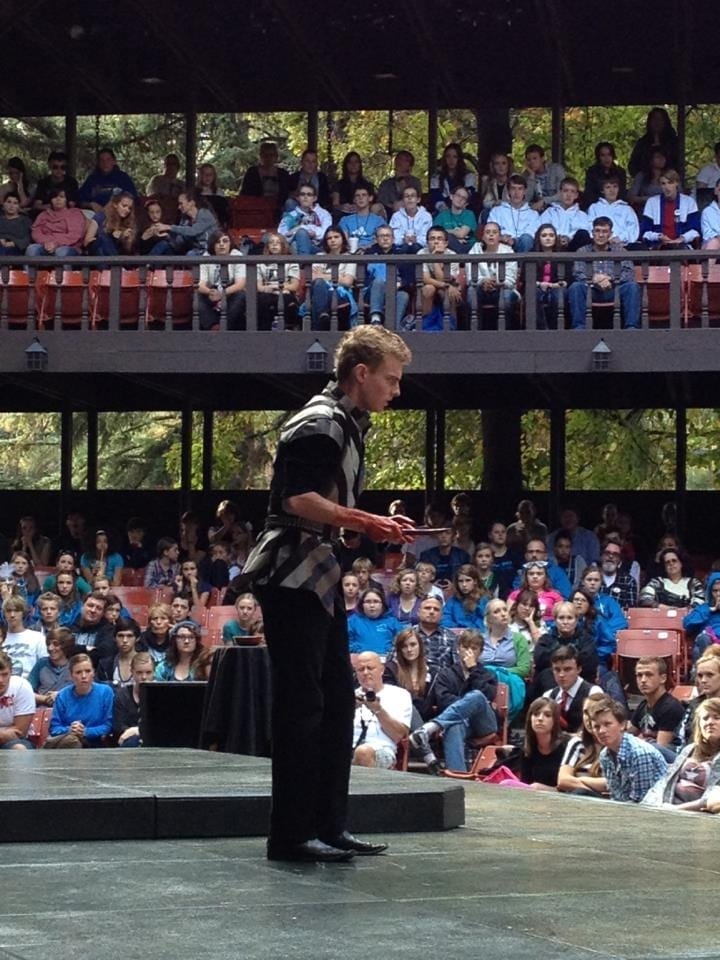Last year at the Utah Shakespeare Festival, I came across a term that I had never heard before: “Henriad.” After hearing a few Festival artists throw the term around, I figured out that it referred to one of Shakespeare’s four-play series of historical dramas: Richard II, Henry IV Part One, Henry IV Part Two, and Henry V.
But I still had questions, and—as is my custom—I tweeted:

I even tweeted the Folger Shakespeare Library in Washington, DC, and they didn’t know:

Well, if the Folger Shakespeare Library—which houses the largest collection of Shakespeare scholarly materials in the world—doesn’t know, then it was likely that I was going to have to figure it out myself.

King Henry V ponders where the term “Henriad” came from. Or maybe not. Sam Ashdown as Henry V. (Photo by Karl Hugh. Copyright Utah Shakespeare Festival 2016.)
After poking around scholarly databases and Google, the earliest use of the term “Henriad” that I could find is from a 1948 article in the University of Toronto Quarterly, a scholarly humanities publication. In the article, author H. M. McLuhan says on p. 153,
The themes on which Shakespeare descants in the “Henriad” are associated with honour, the desire and the deserving of the praise of good men. Henry Bolingbroke is, however, both usurper and regicide.
The way McLuhan uses “Henriad” in quotes shows that this term is not common in 1948. Yet, he doesn’t see a need to explain the term. So, it’s not clear that McLuhan invented the term.
Update: The original version of this blog post ended at this point with a request for further information from readers. Just 5 days the blog post was published, Jennifer A. Kokai, an assistant professor of theatre at Weber State University, sent me information that pushed back the use of the term “Henriad” 72 years (over twice as old as the oldest reference I could find). She sent me the following quote from Shakespeare’s Diversions: A Medley of Motley Wear by Francis Jacox, published in 1876. On pp. 437-438, Jacox writes (with original capitalization) when referring to Mistress Quickly:
. . . her, for her own sake, we should have been glad to meet with, in half a dozen more plays, whether historical as the English Henriad, or purely fanciful as Windsor’s merry wives.
Kokai mentioned that—like McLuhan—Jacox did not feel the need to explain the term. Kokai said, “. . . my guess is because it’s a typical naming convention for a group of stories about the same hero. We’ve lost that naming convention (all scholars back then knew Latin as a matter of course) so it might strike us as odd.” I’m not a philologist, but I think Kokai is right that the word “Henriad” follows the pattern of the Aeneid and the Iliad.
I appreciate Kokai’s email. She has taught me some interesting information that I would never have learned on my own. Her students at Weber State are lucky to have someone so passionate about theatre history as one of their professors.
Are any readers aware of an earlier use of the word “Henriad”? If so, send it to me via email. You can reach me at russell (at) utahtheaterbloggers (dot) com.






